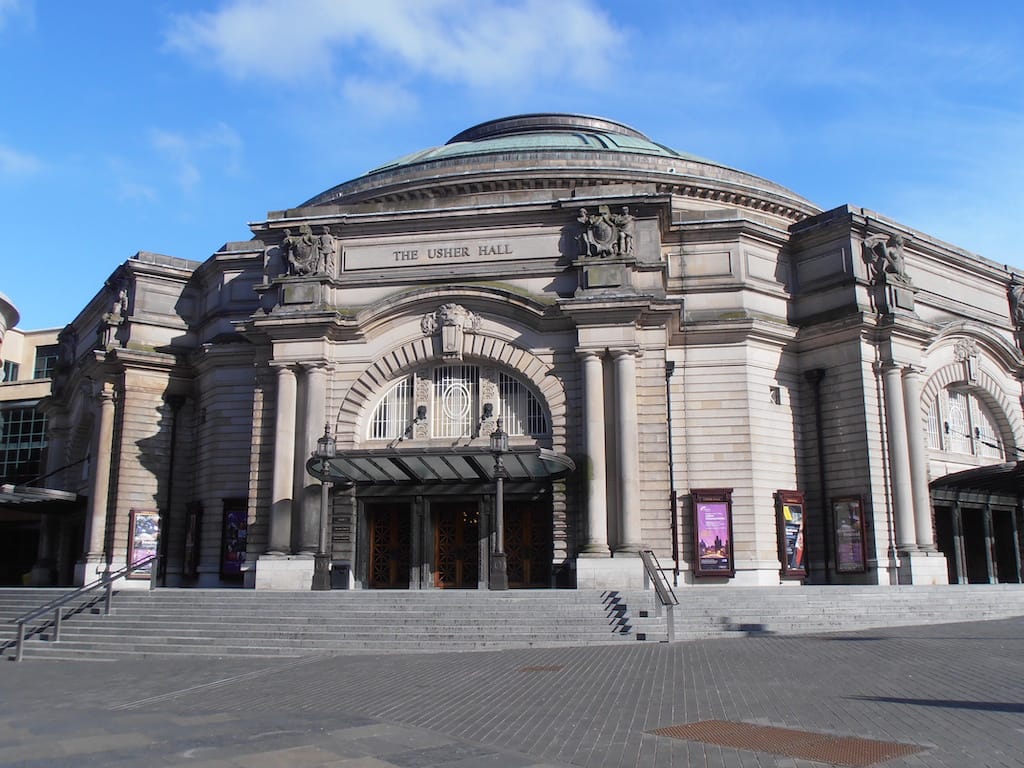Usher Hall: Edinburgh’s Musical Jewel for Over a Century

Every corner of the historic cityscape of Edinburgh—the cobbled streets, the tall medieval architecture and the green hills—has learned to breathe art and music. It is a small city, but the cultural wealth it nurtures is enormous. The Scottish Parliament Building that sits within the UNESCO World Heritage Site in central Edinburgh, too, is no less than a work of art. Not too far stands the iconic edifice of the Usher Hall in the West End of Edinburgh, facing the majestic Edinburgh Castle.
The Usher Hall has been at the heart of the city’s musical life for over a century. At the turn of the 20th century, wealthy brewer Andrew Usher’s dream of creating a hub for musical performers and a place where people could listen to good music took shape. His donation of £100,000 to the Scottish capital led to the building of this venue. Unfortunately, Usher never saw the hall that took his name. The doors of the Usher Hall officially opened in March 1914, 16 years after his demise. The grand opening concerts featured music from Handel, Bach and Beethoven—a bill that would have tested the venue’s excellent acoustics.
“We’ve tried to stay true to that dream for the last 110 years,” says Karl Chapman, Head of Heritage, Cultural Venues, Museums & Galleries at the City of Edinburgh Council. It is now the city’s key venue for national and international visiting orchestras and has been the main venue for the Edinburgh International Festival since its inception in 1947. It has seen legends of the music and comedy world, including Oasis, Björk, Paul Weller, Billy Connolly, Status Quo, Michael Bublé and more. “Rachmaninoff played piano here. Not many concert halls can say that,” adds Chapman.
The Usher Hall knows how to revel in its history. The stunning Edwardian facade cradles the side of the original building. Still owned and managed by the City of Edinburgh Council, the main auditorium can accommodate seating for 2,200 people, standing room for 2,900 people and cabaret-style seating for 1,970 people. With sensitively executed refurbishments, the hall, like its city, has a delicate charm; a harmony of nostalgia and modernity. Chapman tells us, “It is like the music has been ingrained into the walls and the seats over a century.”
The relationship between the Usher Hall and the city council—the governing body—is a harmonious one too. It is telling of Edinburgh’s deep interest and investment in its artistic capital. “Our actual operation is not too dissimilar from independent trusts. The city council is good at leaving us alone,” Chapman explains. “But there is immense strength in it too. We work for the city as a part of the city that is so culturally aware. We feel very strongly as the citizens of Edinburgh and that drives quite a lot of our thinking and work,” he elaborates.
It is not surprising then that the Usher Hall has been a significant presence in the history of the city. The extensive basement rooms of the hall made it an ideal air-raid shelter during the Second World War. Graffiti and painted signs from the time are still present in the basement. In 1986, when the city hosted the Commonwealth Games, the hall provided a venue for the boxing tournaments. Over the years, culture, politics, sports and welfare have all converged at the hall stage. More recently, the hall set up a testing centre during the Covid-19 pandemic, sharing the weight with the city’s administration.
The Usher Hall is the Edinburgh home of the Royal Scottish National Orchestra, who play there regularly during their season. Among other customary performers are the Scottish Chamber Orchestra, Scottish Fiddle Orchestra, National Youth Orchestra of Scotland and local organisations, such as the Edinburgh Royal Choral Union.
By Aishwarya Bodke. This piece was originally published by the National Centre for the Performing Arts, Mumbai, in the November 2023 issue of ON Stage – their monthly arts magazine.





